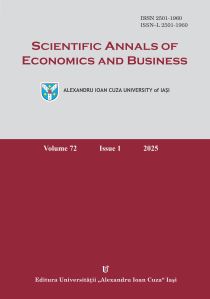
Effects of Economic Growth and Energy Consumptions on Environmental Degradation within the Framework of LCC Hypothesis in BRICS Countries
Effects of Economic Growth and Energy Consumptions on Environmental Degradation within the Framework of LCC Hypothesis in BRICS Countries
Keywords: LCC hypothesis; nuclear energy consumption; renewable energy consumption; hydropower energy consumption; economic growth;
The purpose of this study is to analyze the effects of economic growth, nuclear energy consumption, renewable energy consumption, and hydropower energy consumption on environmental degradation within the framework of the LCC Hypothesis in BRICS countries during the period of 1993-2022. This study aims to make a significant contribution to the literature by simultaneously discussing the effects of hydropower, nuclear, and renewable energy consumption on the load capacity factor in addition to the LCC Hypothesis for the BRICS countries for the first time. Due to the autocorrelation and heteroscedasticity problem, the FGLS (Feasible Generalized Least Square) method was used in the estimated model. According to empirical findings, the LCC hypothesis is not valid in the sample group countries. It was determined that hydropower energy consumption increases the load capacity factor, whereas nuclear energy consumption decreases the load capacity factor. No relationship was found between renewable energy consumption and the load capacity factor. These findings provide important information about the effects of energy consumption strategies of BRICS countries on environmental sustainability.
More...